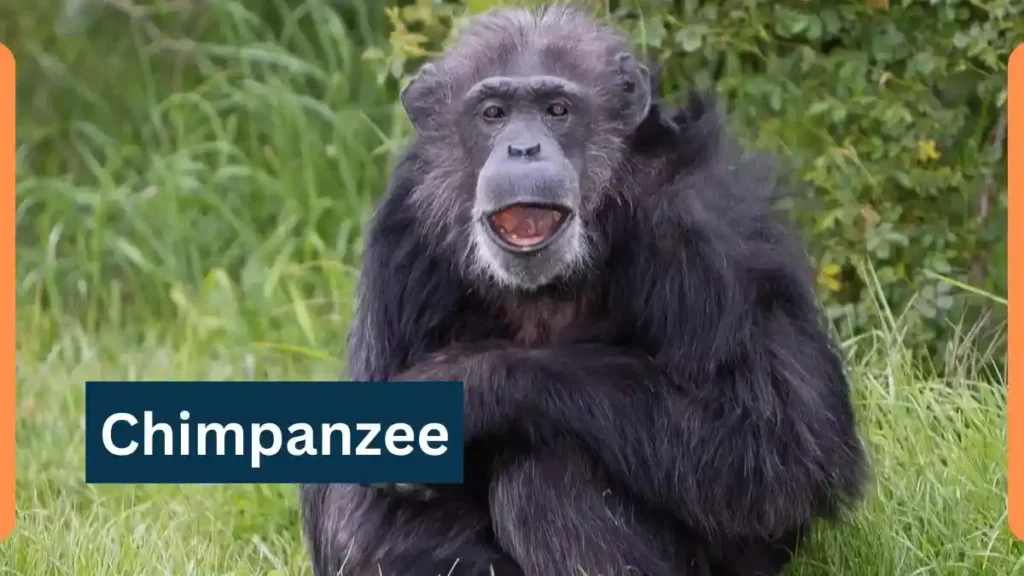Chimpanzee-Classification, Appearance, Habitat, and Facts
Our closest living relatives share over 98% of our DNA. They are highly intelligent social animals, living in groups of up to 150 individuals. Chimpanzees are found in the rainforests of Central and West Africa.

Chimpanzee
Here is some information about Chimpanzee:
| Topic | Information |
|---|---|
| Scientific Classification | Kingdom: Animalia |
| Phylum: Chordata | |
| Class: Mammalia | |
| Order: Primates | |
| Family: Hominidae | |
| Genus: Pan | |
| Species: Pan troglodytes (common chimpanzee) and Pan paniscus (bonobo) | |
| Physical Characteristics | Size: Chimpanzees are large primates. Common chimpanzees can weigh between 88 to 132 pounds (40 to 60 kilograms) and stand about 3 to 4 feet (1 to 1.2 meters) tall when on all fours. |
| Coat: They have dark-colored fur with bare faces and ears, and their hands and feet are adapted for grasping. | |
| Habitat and Range | Chimpanzees are primarily found in the dense tropical rainforests and woodlands of Central and West Africa. |
| Behavior and Lifestyle | Social Animals: Chimpanzees are highly social and live in communities or troops. They have complex social structures with dominant and subordinate individuals. |
| Tool Use: Chimpanzees are known for their ability to use tools, such as sticks for extracting termites from mounds or stones for cracking open nuts. | |
| Communication: They use a variety of vocalizations, facial expressions, and body language to communicate within their groups. | |
| Reproduction and Life Cycles | Breeding: Female chimpanzees have a lengthy estrous cycle and give birth to a single offspring after a gestation period of about 230 to 240 days. |
| Maternal Care: Mothers provide extensive care for their infants, and the young chimps remain dependent on their mothers for several years. | |
| Predators and Threats | While chimpanzees have few natural predators, they face significant threats from habitat destruction, hunting, and diseases like Ebola. |
| Conservation Status and Life Today | Chimpanzees are listed as endangered by the International Union for Conservation of Nature (IUCN). Conservation efforts are in place to protect their habitats and combat illegal hunting. |
Chimpanzees are highly intelligent and social primates, sharing many genetic traits with humans. They are known for their tool use, complex social behaviors, and strong family bonds, making them a subject of extensive research and conservation efforts.

 written by
written by 





Leave a Reply